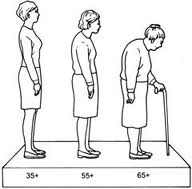 A urine test might soon reveal more about the bones of a person than X-rays, say researchers from the U.S. A new study was paid for by NASA, because of bone loss experienced by astronauts while in space. The new test could help them while in space to cope with the bone loss, but could also have implications for those who suffer from cancers or osteoporosis.
A urine test might soon reveal more about the bones of a person than X-rays, say researchers from the U.S. A new study was paid for by NASA, because of bone loss experienced by astronauts while in space. The new test could help them while in space to cope with the bone loss, but could also have implications for those who suffer from cancers or osteoporosis.
At this time that are not many good ways of detecting bone loss prior to there being a good amount of bone loss suffered by the person. The technique being tested is new and has not been worked with by astronauts prior, so they have decided to invest in research to determine if there are better or more complementary ways to address the problem of bone loss.
The new method measures calcium isotopes that are atoms of an element, differing in mass. Those types of isotopes are in an individual’s urine and can serve to indicate bone strength based upon the mineral balance.
A dozen volunteers had their bone loss measured by maintaining a significant amount of bed rest during a period of 30 days. Bed rest mirrors weightlessness that astronauts experience in space and can be a way to experience bone loss. The new experimental test was able to detect certain bone loss in only 10 days from the time the volunteers started their bed rest.
Bone loss and growth constantly are taking place and with active, healthy humans, it is a process that remains balanced. However, if something throws off that balance, then a shift could take place and too much bone loss could be taking place compared to growth.
